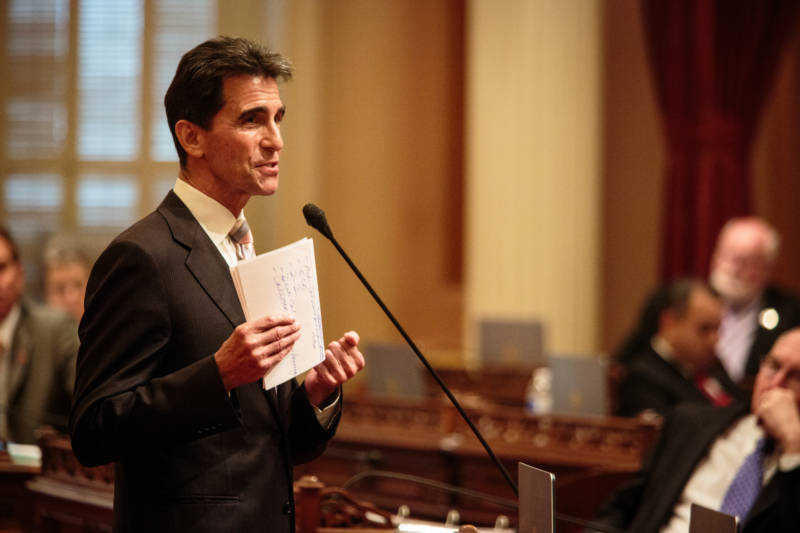"The California Public Utilities Commission has broad authority and impacts all of our daily lives," said state Sen. Mark Leno, D-San Francisco, who has fought for years to subject CPUC commissioners and staff to tougher rules for their conversations with the companies they regulate.
"Their mission is specifically to serve the public interest by protecting consumers and ensuring safe, reliable utility service at reasonable rates. It's a regulatory agency and it's supposed to be our watchdog," Leno said. "Unfortunately -- and I am not alone here in the Legislature -- I believe the commission has lost its way and that it is far too close with the very entities that it is charged to regulate."
Leno's SB 215 would set stricter regulations on lobbying at the CPUC and expand the circumstances when commissioners must recuse themselves from a vote. Leno had tried to completely ban communications between the CPUC and utilities when rates are being set, but Brown vetoed that measures. SB 215 now requires both utility officials and commissioners to report on conversations between the two sides, instead of just utility officials, and sets out new and stronger penalties for both sides if they fail to disclose those communications.
The Assembly approved the bill unanimously Monday. The measure faces one more vote in the state Senate before it goes to the governor.
"Part of the problem now is when there is a conflict of interest and a commissioner should recuse him or herself, it doesn't happen," Leno said. "And when there are ex parte communications -- which is just a fancy way of saying there are secret backdoor meetings between stakeholders and commissioners that no one else has access to -- we have seen that these private communications often result in decisions made that don't protect consumers, as they are charged to do, but in fact are protecting the bottom line of these powerful corporations."
Two more reform bills, SB 512 and AB 2903, are expected to be approved by lawmakers by the end of the month.
SB 512, by Sen. Jerry Hill (D-San Mateo), would make changes to the CPUC's governance structure and require annual reviews of its executive director. The bill would also require the agency to reach out to members of the public and groups that could be affected by its decisions, instead of just utilities.
AB 2903 is the end product of a much broader effort to gut the CPUC, led by Assemblyman Mike Gatto (D-Los Angeles). Introduced as a constitutional amendment in February, Gatto originally proposed asking voters to strip the agency’s constitutional authority and let lawmakers redistribute its power to other state agencies.
The bill negotiated with Brown and CPUC officials would do some of that: It would transfer oversight of transportation companies to the State Transportation Agency and require a study to consider whether telecommunications oversight should be moved out of the CPUC.
But it would also create a new "ethics ombudsman" to both train commissioners and staff around ethics rules and act as a conduit for whistleblower complaints concerning ethics violations. And it would create a new deputy executive director for safety -- or as Gatto called the new position, "a safety czar."
"They will have the right to red-tag anything that's wrong in the state of California," Gatto said, noting that the problems that led to this year's gas leak in Porter Ranch were detailed ahead of time in documents filed with the CPUC -- and could have been addressed if someone at the CPUC had flagged them.
"This person's job, reason for existing, will be to follow up on those things, completely unrelated to whether the commission as a whole is doing something improper," Gatto said.
Gatto's bill also attempts to tackle conflict of interest problems by barring utility executives from serving as a CPUC commissioner within two years of leaving their private sector jobs and by requiring commissioners to step down if they have a financial interest in anything regulated by the CPUC.
Gatto expects lawmakers to take up his bill by Thursday, and for all three pieces of legislation to be sent to Brown by next week's 2016 legislative deadline. A spokesman for Brown confirmed the governor plans to sign the package of reforms and pointed toward comments he made in June when the framework of an agreement was announced.
"These reforms will change how this commission does business," Brown said at the time. "Public access to meetings and records will be expanded, new safety and oversight positions will be created and ex parte communication rules will be strengthened."
